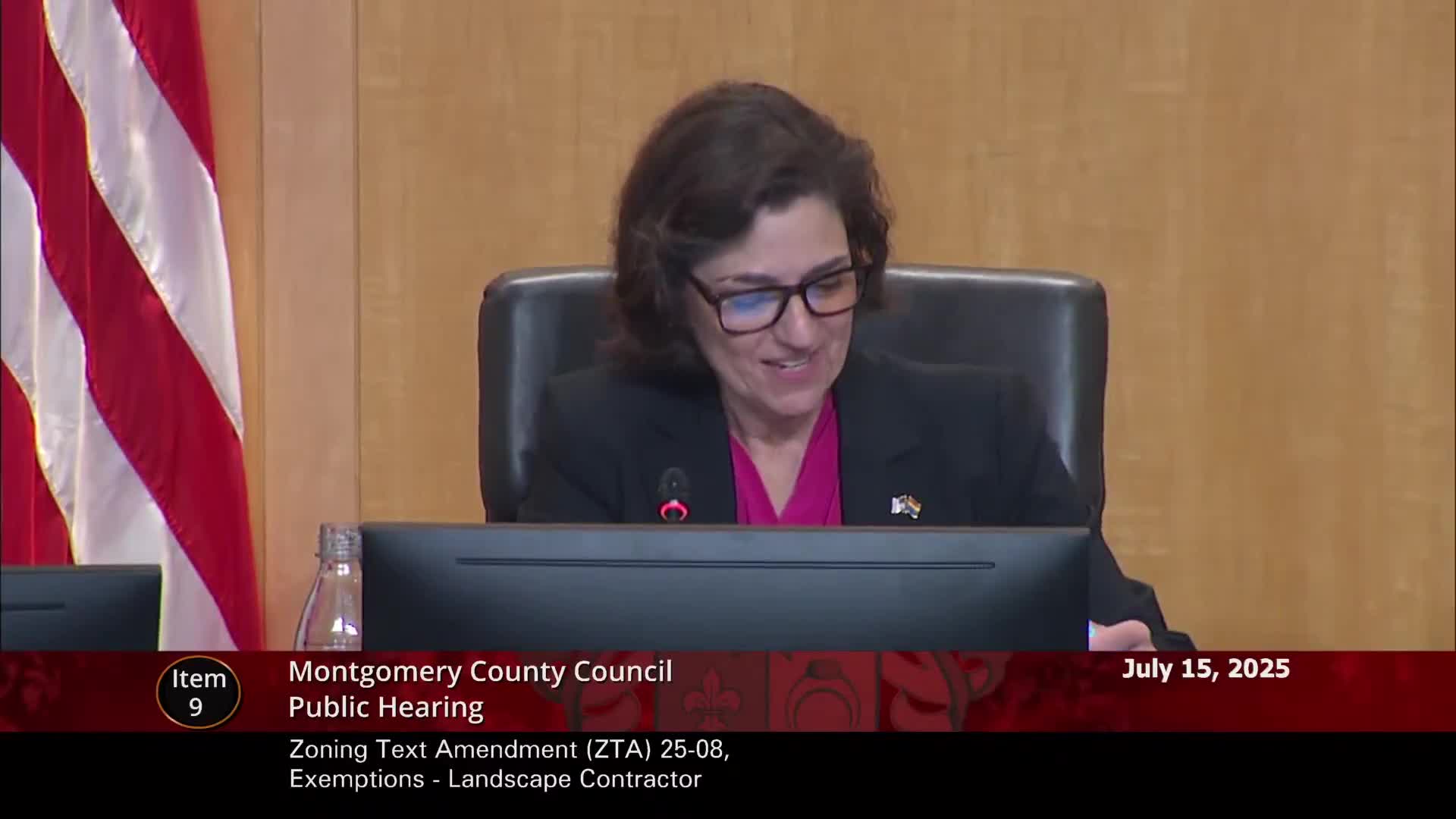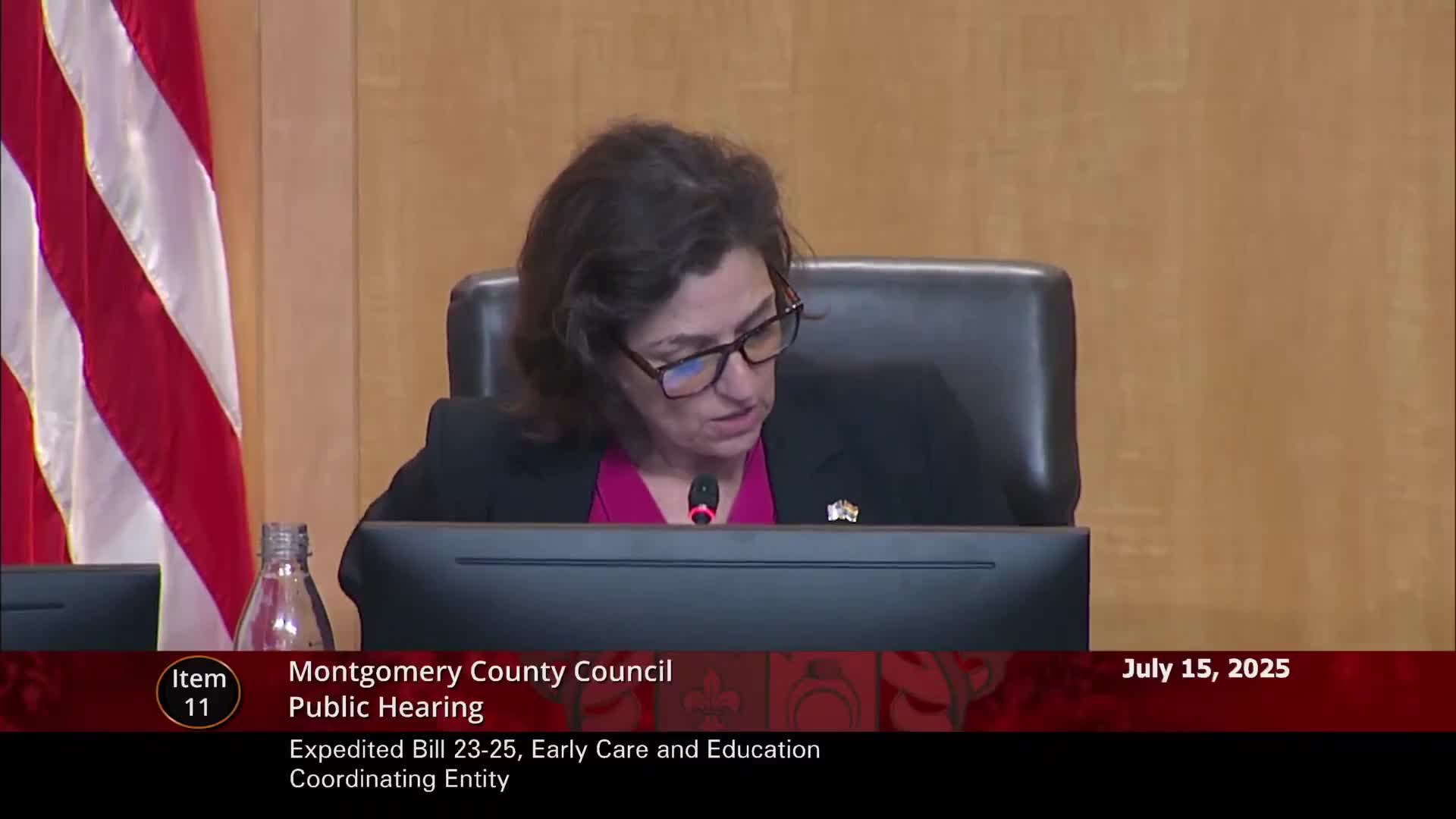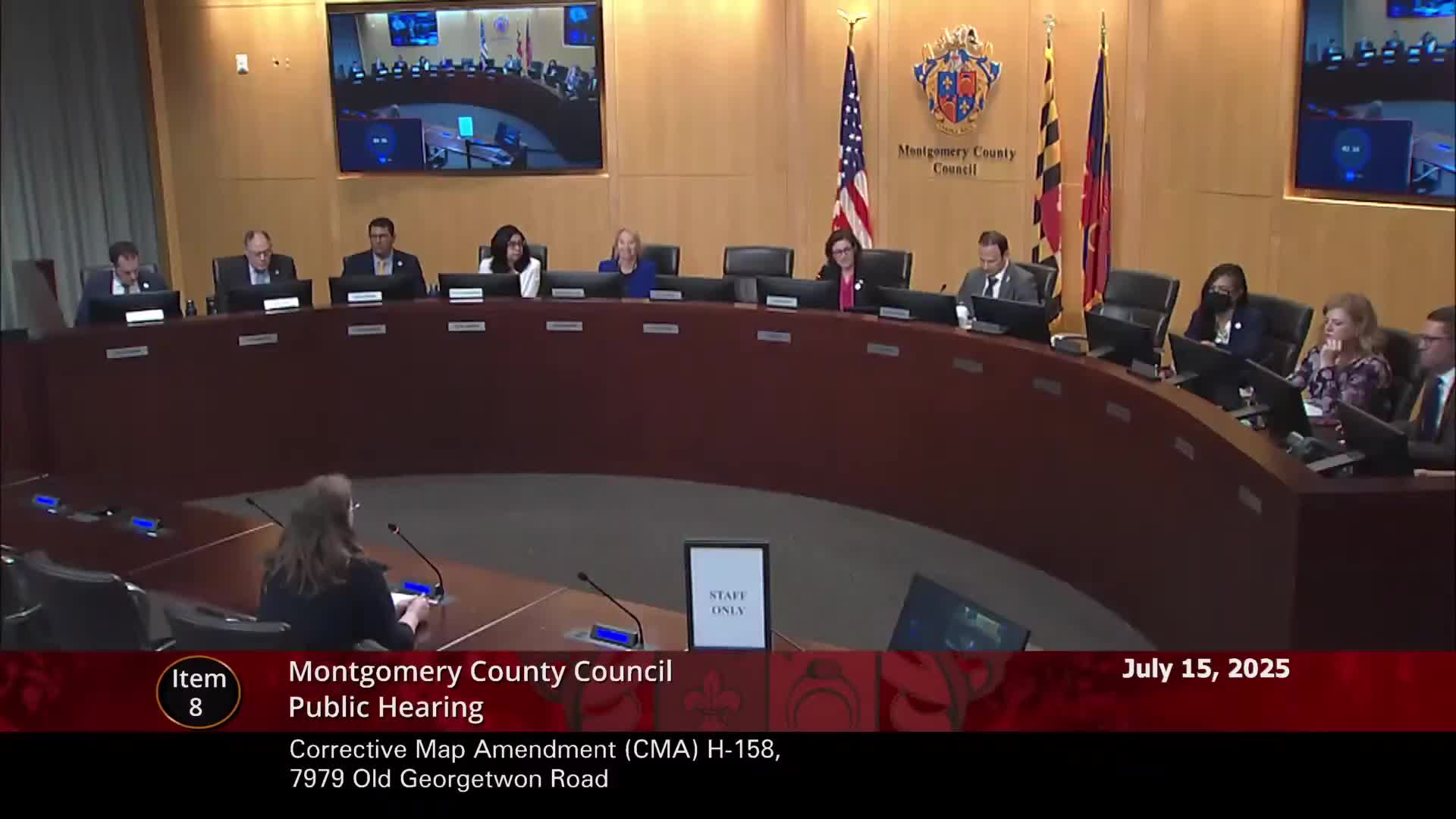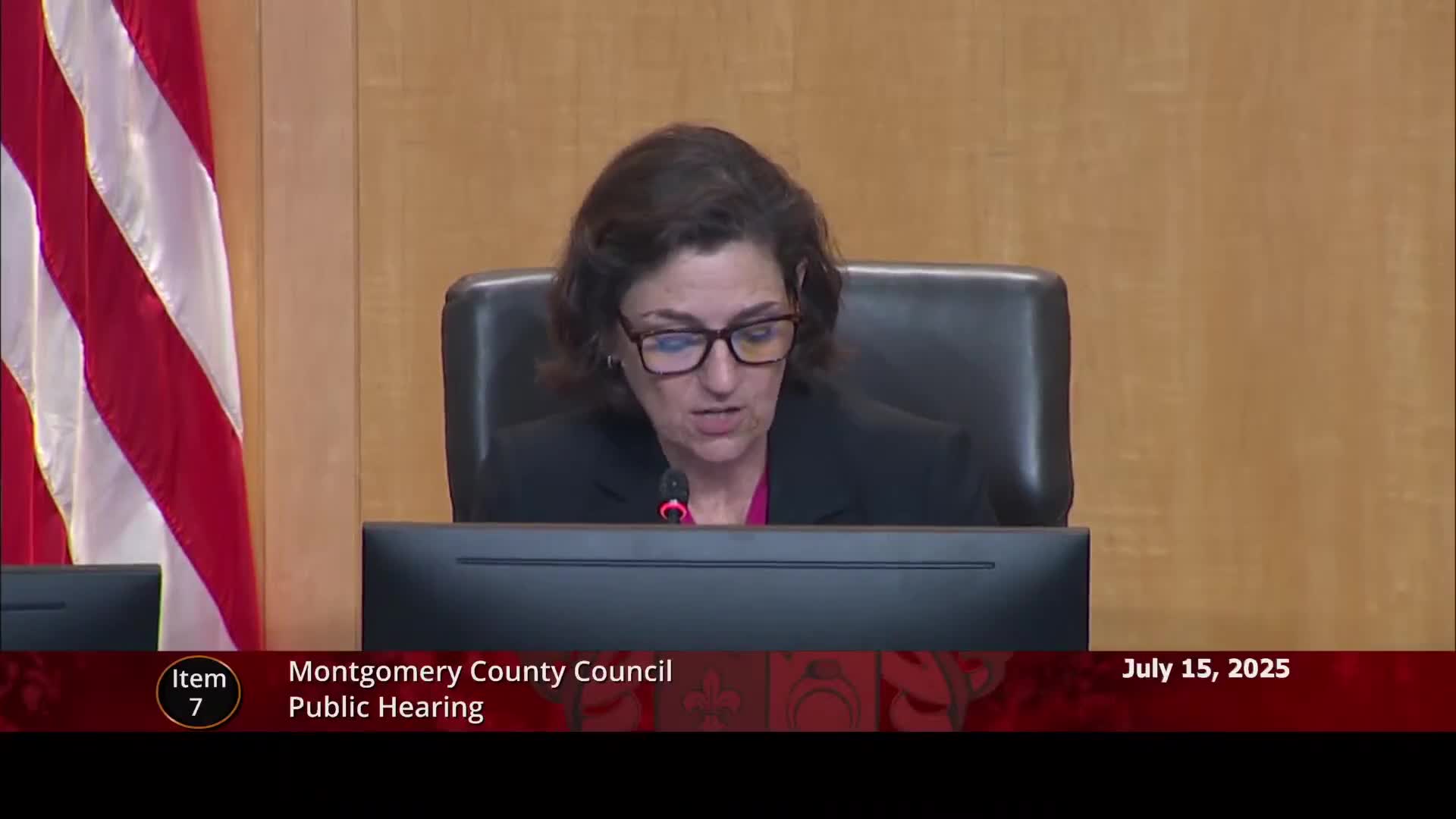Article not found
This article is no longer available. But don't worry—we've gathered other articles that discuss the same topic.

Heated public hearing on leaf blower exemption draws hundreds of residents, landscapers and advocates

Parents, providers and philanthropies urge council not to limit Children’s Opportunity Alliance role

Council hears competing views on proposed grandfathering fix for landscape contractors

Council hears planning staff support to fix Bethesda zoning map error at 7979 Old Georgetown Road

